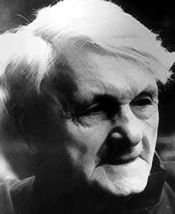 BEACH HOUSE RULES |
 Sunshine, secrets, and swoon-worthy stories—June's featured reads are your perfect summer escape. | Joseph Needham
JOSEPH NEEDHAM will be remembered for his massive achievement embodied in the continuing Science and Civilisation in China series, the successive parts of which have been published by Cambridge University Press since 1954. This great work is planned as a history of science, technology and medicine in China, seen in its fullest social and intellectual context, and illuminated by a deep and sympathetic understanding of the cultures of both East and West. Through his writings he has radically changed the ways in which scholars and scientists evaluate both the history of Chinese culture, and the history of science medicine and technology understood as part of the common cultural heritage of the human race. He was undoubtedly the greatest Western sinologist of this century, and is probably the British historian best-known on a world scale. He has rightly been called "the Erasmus of the twentieth century". HE WAS BORN on December 9, 1900, as the only son of a Harley Street physician and a musically talented mother. After attending Oundle School he went up to Gonville and Caius College, Cambridge and read biochemistry. Caius College was to remain his academic home for the rest of his life; he was successively a research fellow, tutor, fellow and finally (1966-76) Master. For most of the first half of his life Needham was engaged in establishing himself as a chemical embryologist of distinction. The major works of this period are his Chemical Embryology (1931) and Biology and Morphogenesis (1942). But by the time this second book appeared he was already moving in the direction which was to lead him towards his life's work. IN THE MID 1930's he met three young Chinese researchers who had come to work in Cambridge. The interest these bright young people aroused moved him to begin learning Chinese, and when war broke out in Europe and the East it was this connection that led him to propose that he should be commissioned to establish a Sino-British Science Co-operation Office in Chongqing, to where the Chinese government had withdrawn in the face of the Japanese onslaught. During this time he was ideally placed to study what had been accomplished by the Chinese people in the field of science and technology over their long history. What he began to learn astonished him. It became clear (for instance) that printing, the magnetic compass and gunpowder weapons were all Chinese in origin, despite the puzzlement that Francis Bacon had expressed over their beginnings when in the seventeenth century he pointed to "the force and virtue and consequences of discoveries" (Novum Organon, Book 1, aphorism 129). AFTER THE WAR he worked with UNESCO in Paris for a while, but on his return to Cambridge he had already planned the years of work that lay ahead. He set out to answer a question that had been presenting itself to him ever more clearly for some time: why was it that despite the immense achievements of traditional China it had been in Europe and not in China that the scientific and industrial revolutions occurred? He approached Cambridge University Press with a proposal for a one-volume treatment of this subject, which they accepted, but as time went by this plan swelled to seven volumes, the fourth of which had to be split into three parts - and so it went on. Twenty-three parts in all have so far been published, and five more are still on the way. MOST OF THE EARLIER volumes were written in their entirety by Needham himself, but as time went by he gathered an international team of collaborators, to whom the completion of the project is now entrusted. As the project has broadened, so has the range of questions under investigation. It is now clear that no simple answer to Needham's original question will be possible. The quest has opened out into an investigation of the ways in which scientific and technical activity have been linked with the development of Chinese society over the last four millennia.
Log In to see more information about Joseph Needham
SeriesBooks:Science and Civilisation in China, January 2009Volume 1 Hardcover |
|
|
| |||
|
||||



 © 2003-2025
© 2003-2025